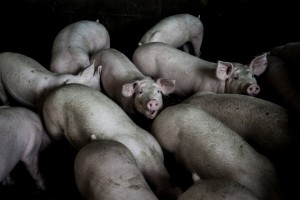COTABATO CITY—A key supporter of a move to establish a new Muslim autonomous region in Mindanao sought to allay fears that the new setup would lead to the strict enforcement of Islamic laws to the detriment of non-Muslims.
Bobby Benito, executive director of Bangsamoro Center for Just Peace, said non-Muslims could continue raising hogs, and non-Muslim women would not be forced to wear a hijab under the new Bangsamoro autonomy setup.
Islam forbids the eating of pork, and highly conservative Muslim communities require women to wear a hijab, a veil that covers the head and chest.
Benito said non-Muslims would continue to enjoy religious freedom and not be forced to adopt Muslim practices under the new autonomous setup.
Christian fears
He sought to give the assurances in reply to a statement made earlier by Basilan Bishop Martin Jumoad, quoting non-Muslims as expressing fears that hog-raising, among others, would be forbidden under the new Muslim autonomous government, and women would be compelled to wear a hijab.
Jumoad said in a pre-Christmas interview with the Inquirer that non-Muslim residents in Basilan were not ready to accept the draft Bangsamoro Basic Law (BBL), which would pave the way for the new political entity.
“The BBL, in general, is good, but there are so many [parts that we are] apprehensive about, particularly once the parliament, which will be composed of Muslims, imposes laws that will go against non-Muslims,” Jumoad told the Inquirer on the phone.
Jumoad cited Sulu, a mainly Muslim province that is now part of the Autonomous Region in Muslim Mindanao (ARMM) and likely to form part of the new autonomous setup, as an example. In Sulu, Jumoad said, non-Muslims could raise hogs in their backyard. “They cannot even have lechon (roast pig) there,” the bishop said.
Not in BBL
Benito, however, said nowhere in the proposed BBL could be found the concerns raised by Jumoad.
He said he had yet to hear about legislative councils, dominated by Muslims, passing local laws that prohibit hog-raising or compel women to wear a hijab.
Hog-raising, however, does bring environmental and health issues if it is not regulated, and this is true even in non-Muslim areas, like the province of Bulacan, where residents complain of air pollution and the threat of diseases from hog farms that are not well maintained, according to Benito.
He said wearing a hijab was also not in the proposed BBL. “Modern women will only be reminded to be as conservative as their hosts in terms of wearing outfits during visits to Muslim communities,” Benito said.
“That’s individual sensitivity,” he said.
Just a dress code
Benito cited as example US government offices in Washington, DC, the seat of power in the United States, where visitors are likely to be barred from entering if they are wearing shorts and sleeveless shirts.
“So what’s the fuss?” he said.
Gov. Mujiv Hataman of the ARMM also appealed to Jumoad to help bring the different faiths to a “dialogue for peace.” Nash Maulana, Inquirer Mindanao
